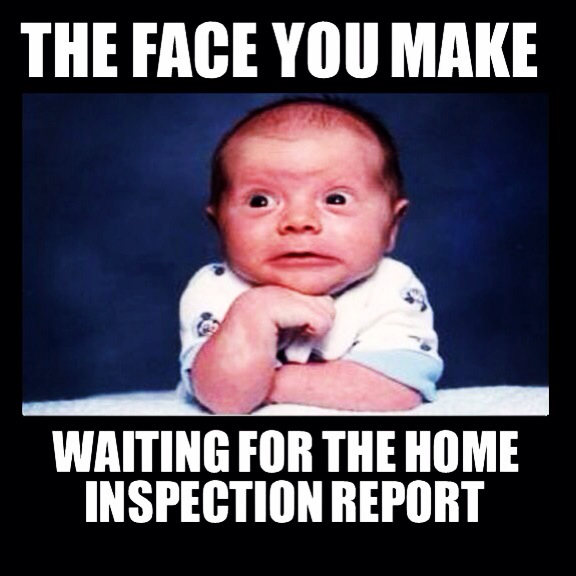 I’m frequently asked where the real estate market is headed and when we will get back to some kind of equilibrium. The truth is it’s extremely difficult to accurately predict the future but here’s what I know: Right now we are experiencing one of the strongest seller’s markets in our history and we’re a full six and a half years into this market recovery. The reason is simple: we have much more demand for homes (buyers) than we have supply of homes (sellers). What’s fascinating to watch is the dynamic build on itself. It looks something like this:
I’m frequently asked where the real estate market is headed and when we will get back to some kind of equilibrium. The truth is it’s extremely difficult to accurately predict the future but here’s what I know: Right now we are experiencing one of the strongest seller’s markets in our history and we’re a full six and a half years into this market recovery. The reason is simple: we have much more demand for homes (buyers) than we have supply of homes (sellers). What’s fascinating to watch is the dynamic build on itself. It looks something like this:
1.Buyers make offers on homes and continue to lose out to higher offers.
2.Buyers get increasingly frustrated and begin to get more aggressive with their offers.
3.The momentum builds on itself until we see what is occurring today, with multiple offers on a propertythe norm rather than the exception.
4.The multiple offer dynamic almost always bids prices higher than the original asking price.
5.The buyers that lose the bid learn from the experience and become more aggressive on their next offer.
6.Then back to Step 1, until the buyer bids high enough on a property to finally get an offer accepted.
The result of course is the tremendously strong seller’s market we have experienced for the past several years. And this seller’s market is not going to change any time soon, at least not until we get back to some kind of balance in the market between buyers and sellers. I don’t see that happening for at least several more years. In the meantime, if you’ve thought about selling your home, now might be a great time to find out what the market is like in your neighborhood and see what your home is worth. It’s almost certainly worth more than it was just a few years ago. Drop me a line and I’ll put together a professional Competitive Market Analysis on your home so you have the data to make the right decision.
Another question my potential sellers often ask is if they sell today, can they find a replacement home in time to move? In a market like ours this is a very good question. Fortunately, there are a number of things savvy sellers can do to take advantage of the seller’s market and put themselves in a good position when looking for their replacement home.
Here are a few:
1.First and foremost, work with an experienced agent to write a strong, professional offer on the home you want to buy. In a dramatically competitive market like we have now, weak, poorly written, unprofessional, and bad offers just aren’t taken seriously. There is both an art and a science to writing a strong offer. Call me and I’ll explain more about how to write an offer that has a great chance of getting accepted.
2.Add a contingency clause to your contract to buy another home. The clause would say that you will close on the home you are purchasing once your own home sells. The problem with this is that it somewhat weakens your offer as many sellers don’t want to accept a contingency when they can sell quickly to the next buyer. But occasionally we do run across a seller that is in no hurry and is happy to wait for the buyer’s home to sell.
3.Lease the home you just sold from the buyer for a period of time while you are looking for your new home (this is called a lease back). Some buyers do not want or are not able to move into their new home immediately and this permits them to earn rent from you for the period of time you are shopping for your next purchase, a win-win situation. 4.Look into a new construction purchase. Builders are building as fast as they can in this market to keep up with demand and there may be inventory of completed or soon-to-be-completed homes that could suit you. 5.Arrange to stay with family or move into short-term rental housing until you find your next home. While not a perfect solution I believe it’s far better to inconvenience yourself for a short period of time than to settle for anything less than your dream home!

“Denver apartment rents rising three times the national average”
This was the Denver Business Journal’s Sept. 2 headline. Denver rents have increased another 7 percent in the past year, which is three times the national average of 2.3 percent. And given the continued lack of rental inventory, rents are expected to continue increasing at a strong pace. Sooooooo…. 1.If you’re a renter it might be time to consider looking into buying a home to get out of the rental market madness! 2.If you’ve ever thought about buying a rental as a long-term investment now might be the time to learn how to purchase a safe, cashflowing property. Interest rates are still near record lows and rents havenever been higher, a wonderful combination for any real estate investor.
Mortgage rates continue to hover at near-record lows. For homeowners looking to upgrade to a larger, better home, low rates combined with low home inventory are making this a great time to upgrade to a larger home with very nearly the same monthly payment. We have several recent examples of clients selling their current homes and getting into a $40,000 – $50,000 more expensive home with the exact same monthly payment. Please give me a call or send me and e-mail and I’ll do a free analysis to see if this might be a good scenario for you to take advantage of.













